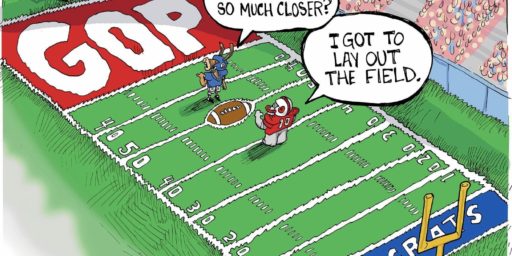Local Newspapers Covering Local News
The Carlisle, Pennsylvania Sentinel has announced that they’re going hyper-local and that national/world news will take the back seat.” Starting today:
- • As with the Sunday paper, the main “A” section will be all local news, with state news toward the back. Obituaries will be in this section, as well as the Opinion page and the “advice” columnists.
• We are introducing a new community page on A2, with a daily calendar of events, a daily local columnist and other local features we hope readers will enjoy.
• The second section of the paper, “B,” will lead off with sports, followed by business and national/world news. The daily weather maps and information will be on the back page.
• An all-new standalone Classified section will follow, labeled “C.” In addition to finding connections to local jobs, merchandise, autos, services, real estate and other needs, you’ll find the daily comics and puzzles.
I agree with Craig Henry that this is sound decision and part of an inevitable trend which “lets newspapers compete in an arena where they have a comparative advantage over cable TV and the internet.”
What’s particularly striking from the above bulleted list from Sentinel executive editor Hope Stephan is how incredibly mundane a product she (and her colleagues at local papers across the country) are producing. A team of reporters are taking on the “local news” virtually unchallenged and yet the vast majority of the paper is filled with newsletter-type minutia like obituaries, horoscopes, weather maps, puzzles, and the like.
Despite their self-perception that they’re following in the footsteps of Edward R. Murrow and Woodward and Bernstein, Henry’s ego-inflating analysis that “the problem for a local newspaper editor is very similar to those faced by a manager of an industrial concern. In a nutshell, how do you manage a group of employees doing boring work for low pay so that you can make a product customers will pay for?” is apt.






In the early 90’s, I worked in another small PA town where the local paper (often called the Daily Yokel News) had a similar, if unofficial, policy. Seeing the contortions necessary to claim the Gulf War was a local story in order to get it onto the front page was amusing.
Yeah. There are legit local angles; presumably, local soldiers are going to and from the war. Certainly, Carlisle PA (home of the Army War College) has them. But trying to go fake-local defeats the point of the exercise: Major papers are going to do it better than you.
The neswpaper business is in steep decline. Papers need fresh approachs if they are to survive. This isn’t it. This is more like rearranging deck chairs on a sinking ship. I can’t think of anything (except maybe full frontal celebrity nudity on pages 2 thru 6) that can save them in the long run.
We were stationed at Carlisle Barracks when my husband attended the War College. I think this was a good decision on the part of the Sentinel.
Most people either received their National news online or from a large city paper.
If only the New York Times had taken its local market more seriously – see the latest charts here to compare its local vs national market shares of its circulation.